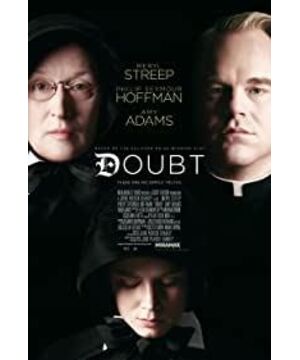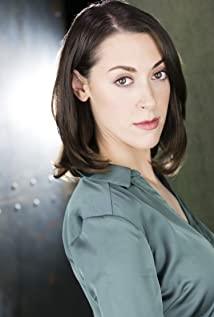Western society is deeply influenced by religion. Everyone is born with a strong binding force. Catholic schools and other organizations are born spontaneously. Social ethics and civilized values seem to have nowhere to go in the blood. The old nun was nothing but the most robust product of the system, and rather than "questioning" whether her "questioning" was justified, it was better to put herself in her position to weigh everything.
The truth, too many people discuss and ask whether the "child abuse" is true or not. A love affair in the evening is enough to move. Coupled with the barriers of race and gender, the audience can shout "Love is eternal". But what happens when this touching love is attached to the captivity? Sadism, misogyny... blah blah blah. The old nun no doubt hated the new priest from the beginning. He challenged the realm of pure religion, but often used superior religious titles to override the values of the old nun.
That part of the conversation between the three of them in the office can be the beginning of such a clue. The priest is the representative of innovation. No matter what desires and attempts are hidden after this, he may represent the trend of social change. The old nun, on the other hand, was devoted to her education, and she tried to forge a perfect personality without error.
It is belief biases like this that give rise to stark opposites when weighing the weight of truth.
It can be boldly assumed that in fact the new priest did nothing, he may just care about Miler, and he also came to the new parish with his innocence. But he was undoubtedly unable to bear the burden of the old nun, and he left unrestrainedly when he could not achieve his goal of reform. In this assumption, he is actually no great, and the viewer who will uphold such "belief" is nothing more than his general belief in "new" love and church reform.
The next assumption is that everything was "guessed" by the old nun. She used powerful negotiating techniques to force the godfather to be ashamed of her behavior, abandoning the authority and responsibilities entrusted to him by religion, and leaving her post. So often, the nuns are staunch defenders, and it is precisely in this assumption that religion becomes a mere belief—that leads people to the other side, but the other side is not necessarily the truth.
In the sermon at the beginning of the film, the godfather promotes the existence of doubt with a very solemn image. If he takes advantage of the Chinese people's guilty conscience, he should be a person who does not have doubt, at least as far as his teachings are concerned. But the old nun's conversation at the dinner table implied her doubts about things. She couldn't believe that the right person was given the right job. She could argue in vain.
And the story doesn't seem to want to pursue what happened at all, you just have to see a strange scale oscillating between truth and belief with no purpose. People are always stubborn creatures, and if religious entanglements are added, no one doubts that the truth will be destroyed. And everyone will watch the whole movie with this puzzle, and appreciate the superb acting skills of the various actors to interpret the truth that is shimmering in the light of such a slanted left and right.
If we are just seeking the consummation of a story, then watching a movie is undoubtedly a dream to see flowers. But if we just experience the wandering of belief, you may be able to experience the "unwarranted" hardships of life in the cry of the old nun at the end of the film.
View more about Doubt reviews











